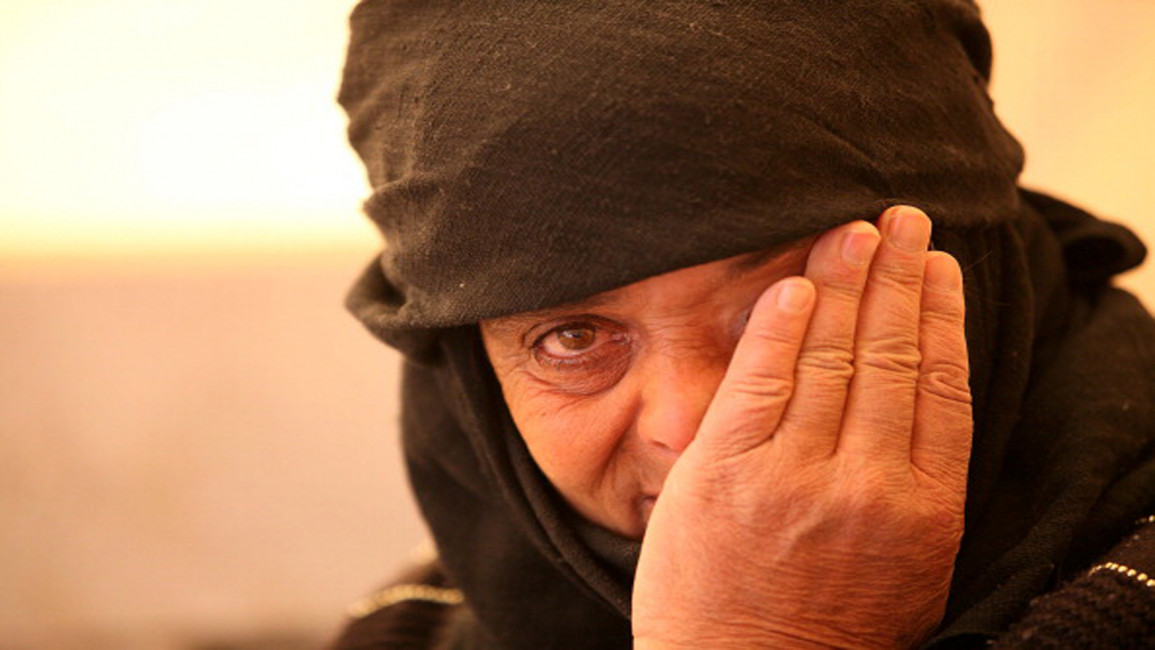
Syrian refugees leaping into the abyss
A few days ago, I attended a reading and panel discussion at the Goethe Institute in Cairo, where I met German novelist and poet of Polish origins Ulrike Draesner, whose family sought refuge in Germany and settled there following World War II.
Ulrike was born and raised in Germany, holding its nationality and speaking its language, but the stories of war and her fleeing family that she heard every day at home remained in her memory, growing with her, just like her desire to search and investigate what happened during that period.
Ulrike documented this investigative and inherited memory in her novel Sieben Sprunge vom Rand der Welt (English title: Seven Springs), where she tells the stories of three generations; the grandfather, the father and the grandsons, who each lived through war and its consequences in their own way.
| We touched on the idea of living in an alternative home country, and its effect on writing. |
In her novel, which has not been translated into Arabic, Ulrike told me: "I tried to embody my grandfather who went to war, along with all the characters I had heard of, including the wives who waited for their husbands to return, the children who lost their fathers, single mothers, the wounded, the crippled, the dead and the cemeteries. In order to understand, I had to feel the smell of blood that I only knew from my father's stories. I had to regain my Polish identity, even though I believe that no identity is more worthy than the human identity."
During the panel discussion, we both touched upon the idea of living in an alternative home country, and its effect on writing, as well as how literature can depict a real event and the difference between writing based on oral memory and writing based on daily-lived memory.
For Ulrike, Germany was never an alternative home; it was the only home she knew. Poland was nothing more than a fictional country with true events. This, for me, is a luxury, as I am a Syrian citizen who left her home only a few years ago, currently living on stand-by in a country, ready to leave any moment. I have no citizen's rights here, I am neither a refugee nor a resident, and I do not know where else to go if asked to do so.
Safety, but no stability
Ulrike wrote her novel while enjoying stability, safety and citizenship. Thus, she says that she does not write for mental balance or therapy, but to understand what happened and to tell others about it.
On the other hand, I write while I lack current and future security, in a state of fear and isolation caused by loss. I write inspired by my soul, which is torn apart by the smell of fresh blood and dust covering warm bodies. I do not write to understand what is happening, and I do not have the luxury of telling stories poetically. I write precisely to feel balance. Writing is the only way to release my anger and mitigate the oppression that may otherwise wreck my nerves.
For me, at this point in my life, writing is like anti-depressant pills; a prescription drug that protects me from collapsing. It mainly benefits me, while others can benefit later if their isolation and fears related to mine. Ulrike needs to embody characters she knew a long time ago or others she heard of in order to write about what happened in Poland.
Decades from now, Syrian writers will need to do the same in order to understand what happened and tell others about it. But right now, Syrian writers - and perhaps I am the least of them, as I did not live through the daily details of war - need to rid themselves of the event's daily details and people, and of their attachment to memory, soul, skin, sleep and nightmares. We need this in order to remain balanced and to stop ourselves from jumping into the abyss.
Opinions expressed in this article remain those of the author and do not necessarily reflect the opinions of al-Araby al-Jadeed, its editorial board or staff.
This is an edited translation from our Arabic edition.



